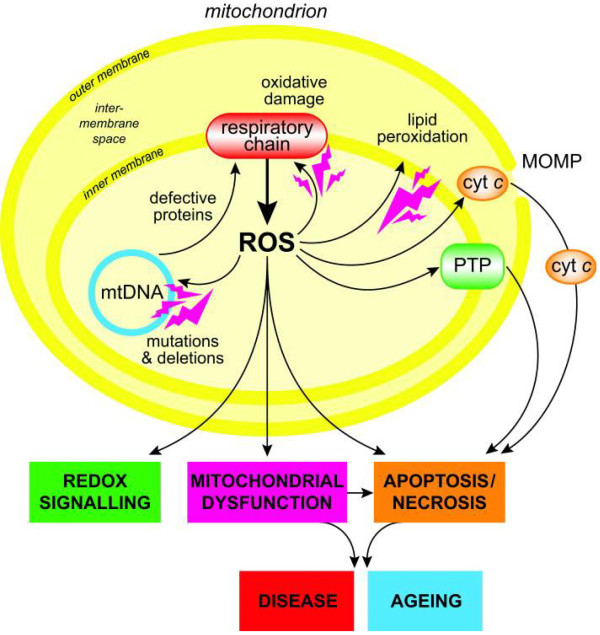Figure 1.
Overview of mitochondrial reactive oxygen species (ROS) production. ROS production by mitochondria can lead to oxidative damage to mitochondrial proteins, membranes, and DNA, impairing the ability of mitochondria to synthesize ATP and other essential functions. Mitochondrial oxidative damage can also increase the tendency of mitochondria to release cytochrome c (cyt c) into the cytosol by mitochondrial outer membrane permeabilization (MOMP), leading to apoptosis. Mitochondrial ROS production leads to induction of the mitochondrial permeability transition pore (PTP), which makes the inner membrane permeable to small molecules. Mitochondrial oxidative damage contributes to a wide range of pathologies, and mitochondrial ROS act as a reversible redox signal modulating the activity of a range of cellular functions. Reproduced from [2] with permission.

